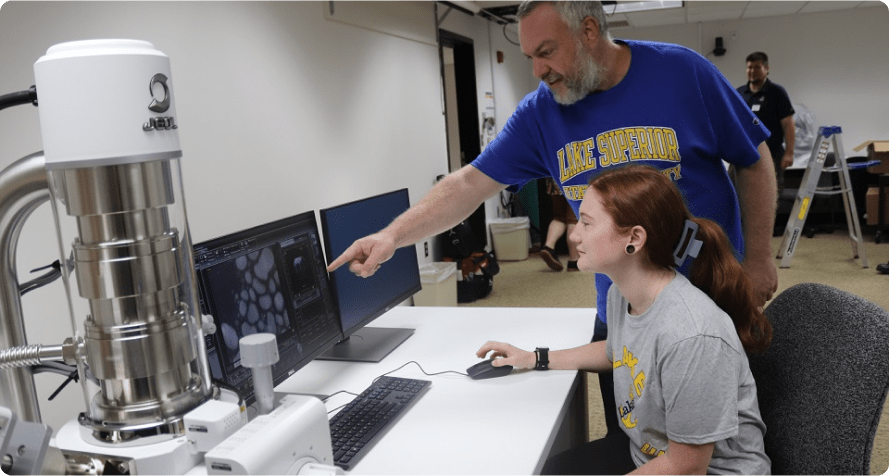Get Straight To Solving Today’s Problems With A Degree In Environmental Science

Are you passionate about addressing global warming, pollution, and alternative energy? Does the natural world inspire you? Environmental science is an interdisciplinary subject that involves studying biology, chemistry, physics, geology and social sciences. By combining an understanding of all of these areas, you are better able to understand the environment and solve today’s problems using the innovative approach taught to you right here at LSSU!
We have concentrations in Physical Sciences, Chemistry and Policy and Management! So many choices for you to design your dream career!
At LSSU, our geographic location and small class sizes means that you will have the opportunity to work closely with faculty members both in and out of the classroom, developing hands on skills and solving real world problems. We also have excellent resources to support your education, ranging from our collection of standard field sampling equipment (multi-parameter sondes, professional GPS receivers, ponar dredges, Van Dorn bottles, plankton nets, Hi-Vol samplers, etc.), to our suite of chemical instrumentation, to our fully featured GIS lab for mapping and spatial analysis.

The College of Arts and Sciences maintains a full complement of modern chemical instruments. Our undergraduate students and faculty use these instruments both in their laboratory experiences and to support their research.
Average Starting Salary for Environmental Scientists
Placement Rate for Graduates Entering the Workforce